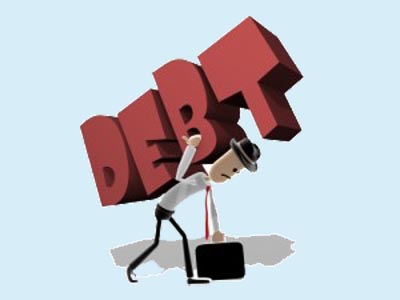 Based on estimated yearly Gross Domestic Product (GDP) of N92.4 trillion as at third quarter (Q3) of 2015, the nation’s debt-to -GDP ratio, which inched higher to 13.6 per cent in 2015 from 12.1 per cent in 2014, is billed to record a new upsurge this year.
Based on estimated yearly Gross Domestic Product (GDP) of N92.4 trillion as at third quarter (Q3) of 2015, the nation’s debt-to -GDP ratio, which inched higher to 13.6 per cent in 2015 from 12.1 per cent in 2014, is billed to record a new upsurge this year.
The development, which is coming on the heels of the analysis of the 2016 appropriation bill with earlier plan of borrowings of about N1.8 trillion- domestic (N984 billion) and foreign borrowing (N900 billion).
Although the debt-to-GDP ratio would appear low relative to a legislative cap of 30 per cent, the increasing debt servicing obligation as a proportion of total expenditure together with a low revenue base, may pose a challenge to debt sustainability.
The national debt stock, published by the Debt Management Office (DMO) had showed that external and domestic obligations rose 12.1 per cent year-on-year or N1.4 trillion to N12.6 trillion ($65.4 billion) in 2015, relative to N11.2 trillion ($67.7 billion) in 2014.
The report also showed that Federal Government’s debt, worth N10.1 trillion ($52.2 billion) accounted for 79.8 per cent, while the state governments debt at N2.5 trillion or $13.2 billion, accounted for 20.2 per cent of the total debt.
The external debt comprise $7.6 billion (70.5 per cent) loan from World Bank Group, while bilateral funding from Chinese Exim Bank and Eurobond accounted for about 13 per cent apiece.
On the other hand, Domestic debt, which amounted to N10.5 trillion ($54.5 billion) contributed the bulk of 83.2 per cent to the country’s debt stock.
With a mooted plan to raise the debt to about N3 trillion, debt service as a proportion of total expenditure may settle at about 22.4 per cent in 2016 from 18.8 per cent proposed in the 2015 budget and actual of 27.7 per cent based on nine-month 2015 budget performance.
Debt servicing to revenue has also been projected to moderate slightly to 35.3 per cent in 2016 from 39.0 per cent in 2015.
In a note to The Guardian, analysts at Afrinvest Securities Limited, said to access this concessionary facilities, monetary and fiscal policies would need to be aligned with current realities to improve the country’s credit worthiness.
“This would involve more flexibility in monetary policy and unlocking non-oil revenue potential to cushion the impact of the debt burden in the medium to long term,” they noted.
Similarly, the National Bureau of Statistics said the nation’s capital importation in recorded huge deficit by 53.8 per cent year-on-year to $9.6 billion from $20.8 billion in 2014.
Foreign Portfolio Investment (FPI) accounted for 62.3 per cent of total capital imported, while Other Investments and Foreign Direct Investment (FDI) accounted for 22.7 per cent and 15 per cent respectively.
The above is largely attributable to foreign exchange concerns coupled with blurry fiscal pronouncements in 2015, which created disincentives for foreign capital inflows and resulted in huge outflows during the year.
“Reviewing the implication of slowing foreign capital vis-à-vis increasing debt profile, as well as government’s borrowing plans, we reiterate the need for a reassessment of current monetary policy stance on foreign exchange and policy harmonisation with the fiscal team to attract capital inflow and improve reserves position,” the analysts added.



